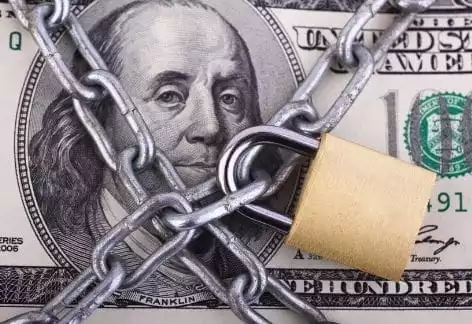Is there a way to receive IRS debt forgiveness? Yes, but only partially.
True total tax debt forgiveness is only possible when a taxpayer’s account was erroneously charged more than it should have been (Doubt as to Liability), in which case the IRS may even issue a tax credit if it turns out you overpaid.
But in cases where your tax liability is not a mistake, there is no way to seek total forgiveness. The IRS will want to see some money, one way or another, and has the unique capacity to issue tax liens and levies that override other creditors’ claims, to represent the interests of the US government.
Nevertheless, working with a tax help and relief firm can greatly reduce your total tax liability, if you prove eligible for the IRS’s partial debt forgiveness program. There are a few other things to consider, and it’s always important to note that owing the IRS money doesn’t automatically spell doom. You have options that you can pursue to reduce your debt or avoid incurring heftier fees. However, time is of the essence.
When Does the IRS Forgive Tax Debt?
When the IRS finds that you owe taxes you have not paid, it sends you a notice that effectively serves as a bill and clarifies your due balance. If you fail to pay by the due date, the IRS will begin to levy failure-to-pay penalties. Your tax debt will also grow on a monthly basis as per a set interest rate.
The IRS will not forgive debt in its entirety. However, if it grows to an unreasonable level, you may have the option of filing for partial IRS debt forgiveness through an Offer in Compromise.
This is a suggestion made to the IRS to only pay as much as you can afford to, based on your financial information. You must make an offer of your own to begin the process, at which point the IRS will calculate whether your offer is truly all you can afford to pay without meeting undue financial hardship, or if it can manage to collect more. This is called your Reasonable Collection Potential, based on your monthly discretionary income for the next two years.
If the IRS finds that your offer generally corresponds with their findings, they may potentially accept your offer. If it doesn’t, they will deny it, and potentially suggest a change.
The longer you wait, the more these penalties will accumulate alongside the interest. Your tax debt continues to grow even while you’re paying it off, although the IRS generally halves continuing penalties and offers a reduced interest rate during payment plans.
Therefore, it’s in your best interest to seek payment options as soon as possible, including partial IRS debt forgiveness through an Offer in Compromise if you cannot otherwise fully pay your tax liability.
Eligibility for IRS Debt Forgiveness
The IRS offers an online pre-qualifier tool for taxpayers to see for themselves if they meet all the preliminary requirements needed to file for an Offer in Compromise, and they help taxpayers prepare their first offer.
This does not guarantee that your offer will be accepted but failing to account for each of the requirements does guarantee that it will be rejected. The most important requirement is to be completely up to date with your tax returns.
The IRS will not accept any offers from taxpayers who have not filed every tax return they are eligible for. If you pay your taxes through estimated tax payments, it’s also important to make sure that you continue to pay those, even if you can’t pay off your debt. The IRS will not accept an offer (including a regular payment plan for the full tax liability) if you aren’t making your estimated tax payments on time.
If you’ve missed this year’s tax return or failed to file one for any of the last few years, be sure to talk to a tax professional. They will be able to help you procure all the necessary paperwork to file your returns and move on to the next step.
A reputable tax professional will also help you prepare an Offer in Compromise that the IRS is less likely to reject. However, avoid working with tax professionals who say they can “guarantee” IRS debt forgiveness of any level. The truth is that there is no guarantee that the IRS will take your offer.
Filing as Currently Not Collectible
Another option is to defer collection actions on your tax liability. To understand why this might help, it’s important to understand how the IRS pursues tax debt.
When a taxpayer’s liability grows to a certain point, the IRS may issue a Notice of Federal Tax Lien via a public registrar, effectively notifying any creditors that the US government now has a legal claim on everything you own, to protect their claim on your tax liability.
This doesn’t mean the government takes away your things yet, but it does mean that if you sell any assets or property, for example, the government is entitled to cover your debt with that money. It also means that most creditors won’t want to work with you, as you cannot secure a loan with anything you own.
If you further ignore the IRS, a tax lien may turn into a levy. At that point, the government claims a property and liquidates it, or empties a bank account. The IRS may also garnish your wages, taking a predetermined cut from every monthly paycheck (based on how many dependents you have) until your debt is covered.
These collection efforts can seriously impact someone undergoing financial hardship, especially when they’re unable to negotiate a payment plan with the IRS to halt them. Thus, the IRS offers the Currently Not Collectible status, which halts all collection efforts until you get back on your feet.
This does not keep your debt from growing. Your tax debt will continue to accumulate penalties and interest. However, the IRS can’t bother you about it. It will check in periodically to determine whether your situation has changed – if it hasn’t, no action will take place. If it has, the IRS may resume collection efforts.
IRS Tax Debt Can Expire
The IRS has ten years from the date of assessment (as noted on your Notice of Deficiency) to collect your debt before it expires. However, that ten-year period can be extended, and the clock stops whenever the IRS cannot legally take collection actions (including the entirety of the period during which you are Currently Not Collectible). This is a tolling period. Other examples of tolling periods include:
-
-
- Being abroad for a substantial period.
- Filing an Offer in Compromise.
- Bankruptcy cases.
- Litigation.
-
Should the Collection Statute Expiration Date (CSED) roll by, your debt to the IRS will be expired. However, it’s quite rare for that to happen, and the IRS will typically ramp up collection efforts the older a debt gets or may try to offer sweeter deals in order to make some kind of collection or enable an extension for further collection.
Why Work with a Professional?
Deferring the collection process and asking for partial IRS debt forgiveness can be a complicated process. By working through a professional, you have better chances of formulating an offer the IRS will accept, and thereby minimizing the penalties and fees accumulating on top of your initial tax debt.
If you believe that the IRS has falsely charged you with tax debt, a tax professional can help you pursue an appeal, and claim doubt as to your liability.


